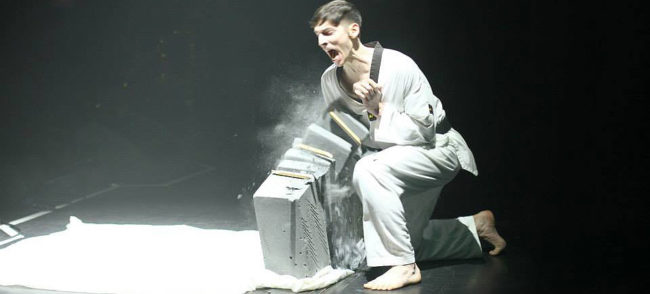Progress in taekwondo is assessed by gradings at the end of each term in which students demonstrate improved ability in the following areas:
- kicking and hand techniques
- patterns
- one-step sparring
- full-contact sparring (for green tag and above)
- physical fitness
- breaking (for green belt and above)

Breaking concrete with taekwondo
Successful performance in the grading is rewarded by progression towards higher belts. Belt progression is as follows:
After each belt, you receive a tag of the next belt up, i.e after white belt, you receive a yellow tag before your yellow belt.
Beyond club black belt, there are international black belts for 1st Dan, 2nd Dan, etc; these are awarded by an international panel of judges.
Specific details about grading requirements can be found in the dropdown menu.
Costs
Current insurance is required in order to grade.
- Up to Green Belt: £15 for a single grade, £30 for double grade
- Green Belt to Red Belt: £20 for a single grade, £35 for a double grade
- Red Belt to Black Tag: £25
We do not charge for unsuccessful gradings.
If you want to grade
It is club policy that if you would like to attempt a grading, you must train a minimum of two times per week and obtain the chief instructor’s approval. He will assess your abilities and let you know whether you have a good chance of passing.
Your objective in learning a martial art is to develop skills and abilities to their fullest extent. In order to grade you should be truly being proficient in the techniques being asked of you not just be able to scrape together a half-decent performance.
To quote our chief instructor Dr. Pete Smielewski, “…it is not a shame to not grade every time there is an opportunity”, and you should not feel under any pressure to do so. Everyone progresses at their own pace; it is much better for you to take your time and only grade when you are truly ready to do it.